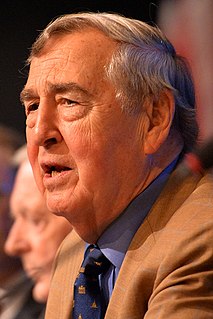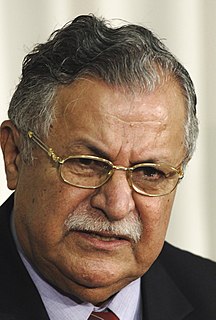A Quote by Peter Bergen
Certain Gulf Arabs support proxy jihadist Sunni groups such as al Qaeda's affiliate in Syria, while Iran supports Shia militant forces such as Hezbollah.
Related Quotes
The fact that there are now many entities that may have some loose affiliation with a former core Al Qaeda - or who have decided to fashion themselves as an affiliate or follower in the Al Qaeda jihadist tradition - as well as groups that are just inspired by the concept that they could also be the perpetrators of mass killing, means that there is a spectrum of threats.
The idea that Hezbollah is acting as an agent of Iran is very dubious. It's not accepted by specialists on Iran or specialists on Hezbollah. But it's the party line. Or sometimes you can put in Syria, i.e. "Syrian-supported Hezbollah," but since Syria is of less interest now you have to emphasize Iranian support.
The ultimate goal is to change Syria's behaviour on a variety of issues - on its interference in Lebanese internal affairs, on its support for Palestinian terrorist groups that oppose the Palestinian Authority, on, most importantly, acting as a land bridge between Iran and Hezbollah, where Hezbollah gets all its arms.
Some Pakistanis fought for the Taliban. Pakistani extremist groups provided infrastructural support to Al Qaeda. There was a coming and going of Al Qaeda militants and leaders between Afghanistan and Pakistan for several years. All that has really happened is that Al Qaeda has escaped from Afghanistan come into Pakistan, got in touch with their contacts and friends in these extremist groups, which then provided them with safe houses, cars, and not just in the border areas but also in the cities. Rooting out Al Qaeda in Pakistan now is where the main battle is being fought.
By the end of 2008, clearly, the al Qaeda and Sunni insurgency had been relatively stabilized. And in the al Qaeda's mind, they were defeated. They actually said that in many of their transmissions that we were able to pick up. And the Shia militia, largely those trained by the Iranians in Basra and also in Sadr City, had been defeated.






























